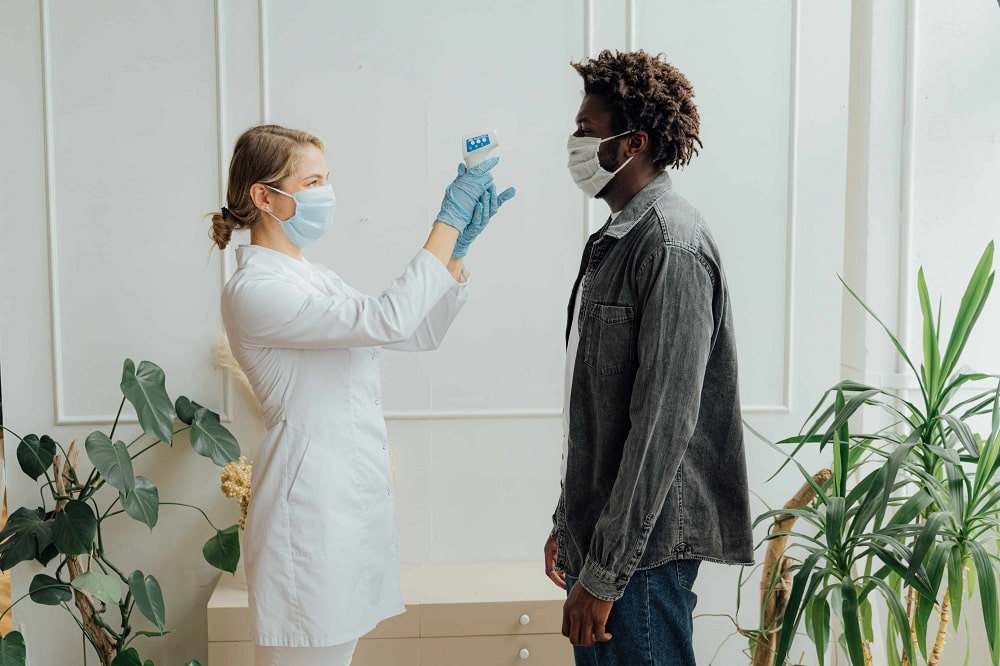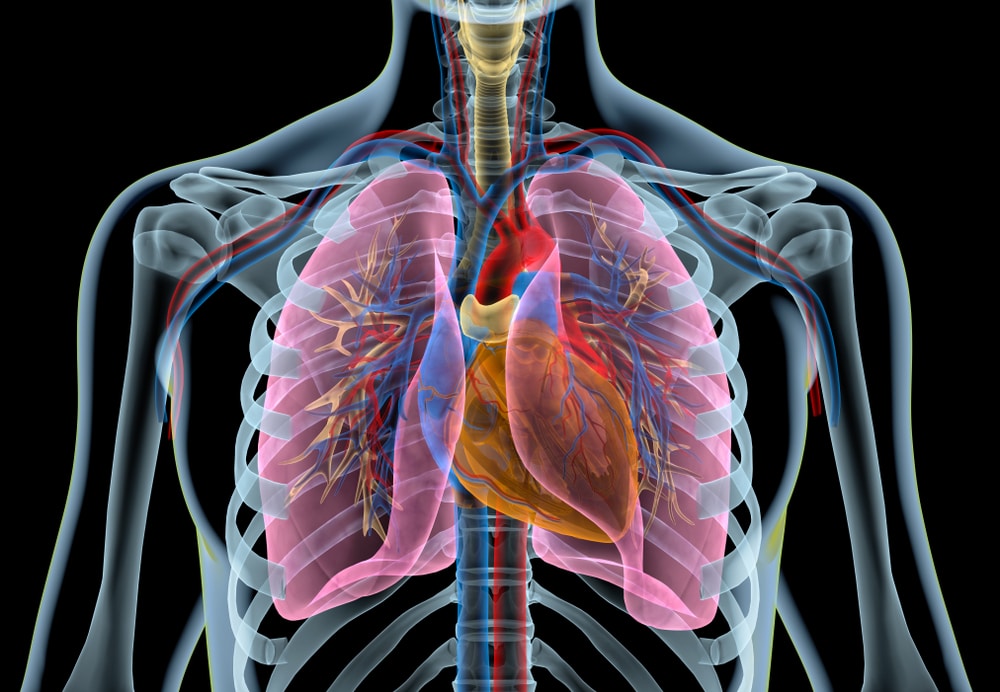Contents
143 Useful Spanish Medical Terms

Medical Spanish is useful for medical professionals, travelers, everyday folks and anyone who wants to be equipped to help people out in an emergency.
In this post, you’ll find 143 Spanish medical terms, covering everything from key vocabulary for giving medical information and describing symptoms to talking about common medical conditions.
Download: This blog post is available as a convenient and portable PDF that you can take anywhere. Click here to get a copy. (Download)
Giving and Asking for Medical Information
When you arrive at a hospital or want to speak with a medical professional about a condition, you’ll often have to begin by giving important information, such as your name, social security number or insurance details before you are seen.
You’ll notice below that, when speaking to patients, medical personnel will generally use the formal usted form of “you.”
| Spanish | English |
|---|---|
| ¿Cuál es el problema? | What is the problem? |
| Me duele / duelen la / el / las / los... | My ______ hurt/hurts. |
| Me duelen los pies. | My feet hurt. |
| Tengo dolor de... | I have a pain/ache of... |
| Tengo dolor de cabeza. | I have a headache. |
| Estoy enfermo / enferma. * | I am sick (masculine/feminine) |
| Siéntese aquí, por favor. | Sit here, please. |
| ¿Tiene seguro médico? | Do you have medical/health insurance? |
| Necesito ver su... | I need to see your... |
| Tarjeta de seguro médico | Medical/health insurance card |
| ¿Cuál es su...? | What is your...? |
| Nombre | First name |
| Apellido | Last name |
| Nombre completo | Full name (first and last) |
| Número de seguro social | Social security number |
| Número de teléfono | Telephone number |
| Dirección | Address |
| ¿En qué trabaja? | What field do you work in? |
| ¿Quién es su contacto de emergencia? | Who is your emergency contact? |
*As is standard with Spanish-language adjectives and nouns, we use the masculine –o ending when referring to boys and men and the feminine –a ending when referring to girls and women.
Describing Your Symptoms in Spanish

After giving your information and briefly mentioning your condition, you’ll need to describe your symptoms.
| Spanish | English |
|---|---|
| Dolor | Pain |
| Enfermo / Enferma | Sick, sick person, patient (masculine/feminine) |
| Enfermedad | Illness, sickness, disease |
| Temperatura | Temperature |
| Presión | Blood pressure |
| Presión baja | Low blood pressure |
| Presión alta | High blood pressure |
| Pulso | Pulse |
| Síntoma | Symptom |
| Fiebre / Calentura | Fever |
| Pérdida de peso | Weight loss |
| Mal apetito / Poco apetito | Bad appetite / Poor appetite |
| Malestar en el estómago / Trastorno estomacal | Upset stomach |
| Náuseas | Nausea |
| Vómito | Vomit, vomiting |
| Diarrea | Diarrhea |
| Estreñimiento | Constipation |
| Fatiga | Fatigue |
| Palpitaciones | Palpitations |
| Falta de aire | Shortness of breath |
| Mareo | Motion sickness, dizziness |
| Debilidad | Weakness |
| Insomnio | Insomnia |
| Hinchazón | Swelling, bloating, bump/lump |
| Roncha | Bump, lump |
| Sarpullido / Salpullido | Rash |
| Picazón / Comezón / Picor | Itch |
Essential Spanish Medical Terms
Whether you’re talking to a doctor or visiting a family member in the hospital, it’s important to know these essential Spanish medical terms.
| Spanish | English |
|---|---|
| Doctor / Doctora , Médico / Médica | Doctor (masculine/feminine) |
| Enfermero / Enfermera | Nurse (masculine/feminine) |
| Internista | Internist |
| Cirujano / Cirujana | Surgeon (masculine/feminine) |
| Ayudante | Assistant |
| Técnico / Técnica | Technician (masculine/feminine) |
| Paciente | Patient |
| Hospital | Hospital |
| Clínica | Clinic |
| Farmacia | Pharmacy |
| Consultorio | Doctor's office, surgery |
| Sala de espera | Waiting room |
| Sala de emergencia | Emergency room |
| Sala de cuidados intensivos | Intensive care unit (ICU) |
| Sala de maternidad | Maternity ward |
| Sala de operaciones / Quirófano | Operating room |
| Sala de recuperación | Recovery room |
| Laboratorio | Lab |
| Examen | Test, exam, checkup |
| Análisis de sangre | Blood test, blood work |
| Tomografía | Tomography |
| Biopsia | Biopsy |
| Radiografía | Radiography |
| Terapia | Therapy |
| Cirugía | Surgery |
| Ritmo cardíaco | Heart rate |
| Signos vitales | Vital signs |
| Peso | Weight |
Common Medicines in Spanish
If you need to go to a pharmacy or request specific medication when abroad, these words will be useful.
| Spanish | English |
|---|---|
| Medicina | Medicine |
| Medicamento | Medication, medicine |
| Prescripción / Receta | Prescription |
| Pastilla | Pill |
| Píldora * | Pill |
| Cápsula | Capsule |
| Tableta | Tablet |
| Ungüento | Ointment, salve |
| Crema | Cream, lotion |
*Píldora generally means “pill.” However, it’s also used to refer to the birth control pill in particular.
Parts of the Body in Spanish
Knowing the words for parts of the body in Spanish is essential. Here are some of the most common terms you’ll hear:
| Spanish | English |
|---|---|
| Espalda | Back |
| Espina / Columna vertebral | Spine |
| Cara | Face |
| Pulmón | Lung |
| Músculo | Muscle |
| Piel | Skin |
| Hueso | Bone |
| Sangre | Blood |
| Arteria | Artery |
| Vena | Vein |
| Corazón | Heart |
| Cerebro | Brain |
| Lengua | Tongue |
| Esófago | Esophagus |
| Estómago | Stomach |
| Hígado | Liver |
| Vesícula biliar | Gallbladder |
| Páncreas | Pancreas |
| Apéndice | Appendix |
| Riñón | Kidney |
| Vejiga | Bladder |
| Abdomen | Abdomen |
| Ingle | Groin |
| Intestino | Intestine |
| Colon | Colon |
| Ojo | Eye |
| Oreja | (Outer) ear |
| Oído | (Inner) ear |
| Boca | Mouth |
| Nariz | Nose |
| Mandíbula | Jaw |
| Cuello | Neck |
| Diente | Tooth |
| Brazo | Arm |
| Hombro | Shoulder |
| Muñeca | Wrist |
| Mano | Hand |
| Dedo | Finger |
| Dedo del pie | Toe |
| Pierna | Leg |
| Cadera | Hip |
| Rodilla | Knee |
| Tobillo | Ankle |
| Pie | Foot |
For more Spanish body part vocabulary, check out this post.
Medical Conditions and Illnesses in Spanish
If you have any medical conditions or allergies, it’s important to learn the appropriate vocabulary before you travel.
| Spanish | English |
|---|---|
| Diabetes | Diabetes |
| Hepatitis | Hepatitis |
| Conmoción cerebral | Concussion |
| Depresión | Depression |
| Enfermedad cardíaca | Heart disease |
| Ataque al corazón / Infarto / Paro cardíaco | Heart attack |
| Artritis | Arthritis |
| Cáncer | Cancer |
| Apoplejía / Derrame cerebral | Stroke |
| Asma | Asthma |
| Alergia | Allergy |
| Virus | Virus |
| Catarro / Resfriado | Cold |
| Gripe | Flu |
| Infección | Infection |
| Envenenamiento / Intoxicación | Poisoning |
Why You Should Learn Medical Spanish
One reason why many people learn medical Spanish is to prepare to work in a medical field. Plenty of jobs require Spanish, including some great ones in the medical field. Even if a job doesn’t require Spanish, there are still economic advantages to learning it. Learning proper medical terms is a good way to work towards better Spanish for business, particularly if you’re working in any healthcare or medical field.
Another reason to learn medical Spanish is to prepare you to assist a Spanish-speaker in a medical emergency. Many EMTs don’t speak Spanish, and some hospitals and clinics lack sufficient Spanish-speaking staff. While they have professional translators they can call, there isn’t always time in an emergency. Being able to pitch in and help with your Spanish skills could literally save a life.
Learning medical Spanish can also help you communicate during a medical emergency abroad.
Medical Spanish is also valuable in order to communicate an underlying medical condition while abroad. If you have any chronic conditions, it’s important to know the terms to describe your condition and associated symptoms. Putting together your own advanced Spanish vocabulary list will help you keep track of all the terms related to your condition.
You should also learn some medical Spanish in case you need medication abroad. Try to bring your own medications whenever possible and make sure you follow the International Association for Medical Assistance to Travellers’ guidelines. Being able to describe what’s happening is key to getting the assistance you need.
Resources to Learn Medical Spanish
There are lots of great resources like MedicalSpanish.com and PracticingSpanish.com to help prepare you with more useful medical terms. Medical students or others looking for the full treatment could also check out the “Medical Spanish Series” at ed2go, a set of online courses that specifically teach you Spanish for use in medical situations.
Seeing medical terms used in context can help you begin to incorporate them into your everyday Spanish vocabulary. You can try searching for some of these terms on FluentU to hear them used by native speakers.
FluentU takes authentic videos—like music videos, movie trailers, news and inspiring talks—and turns them into personalized language learning lessons.
You can try FluentU for free for 2 weeks. Check out the website or download the iOS app or Android app.
P.S. Click here to take advantage of our current sale! (Expires at the end of this month)

Whether you’ve planned a trip abroad to a Spanish-speaking country or you need to learn medical Spanish for your profession, these 143 Spanish medical terms and phrases will help prepare you!
Use them in good health!
Download: This blog post is available as a convenient and portable PDF that you can take anywhere. Click here to get a copy. (Download)
And One More Thing…
If you've made it this far that means you probably enjoy learning Spanish with engaging material and will then love FluentU.
Other sites use scripted content. FluentU uses a natural approach that helps you ease into the Spanish language and culture over time. You’ll learn Spanish as it’s actually spoken by real people.
FluentU has a wide variety of videos, as you can see here:

FluentU brings native videos within reach with interactive transcripts. You can tap on any word to look it up instantly. Every definition has examples that have been written to help you understand how the word is used. If you see an interesting word you don’t know, you can add it to a vocab list.

Review a complete interactive transcript under the Dialogue tab, and find words and phrases listed under Vocab.

Learn all the vocabulary in any video with FluentU’s robust learning engine. Swipe left or right to see more examples of the word you’re on.

The best part is that FluentU keeps track of the vocabulary that you’re learning, and gives you extra practice with difficult words. It'll even remind you when it’s time to review what you’ve learned. Every learner has a truly personalized experience, even if they’re learning with the same video.
Start using the FluentU website on your computer or tablet or, better yet, download the FluentU app from the iTunes or Google Play store. Click here to take advantage of our current sale! (Expires at the end of this month.)












